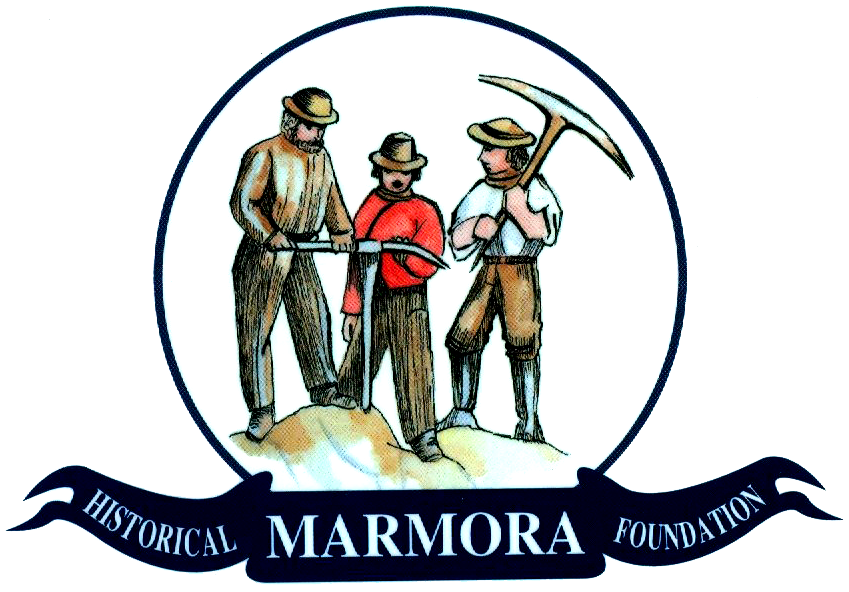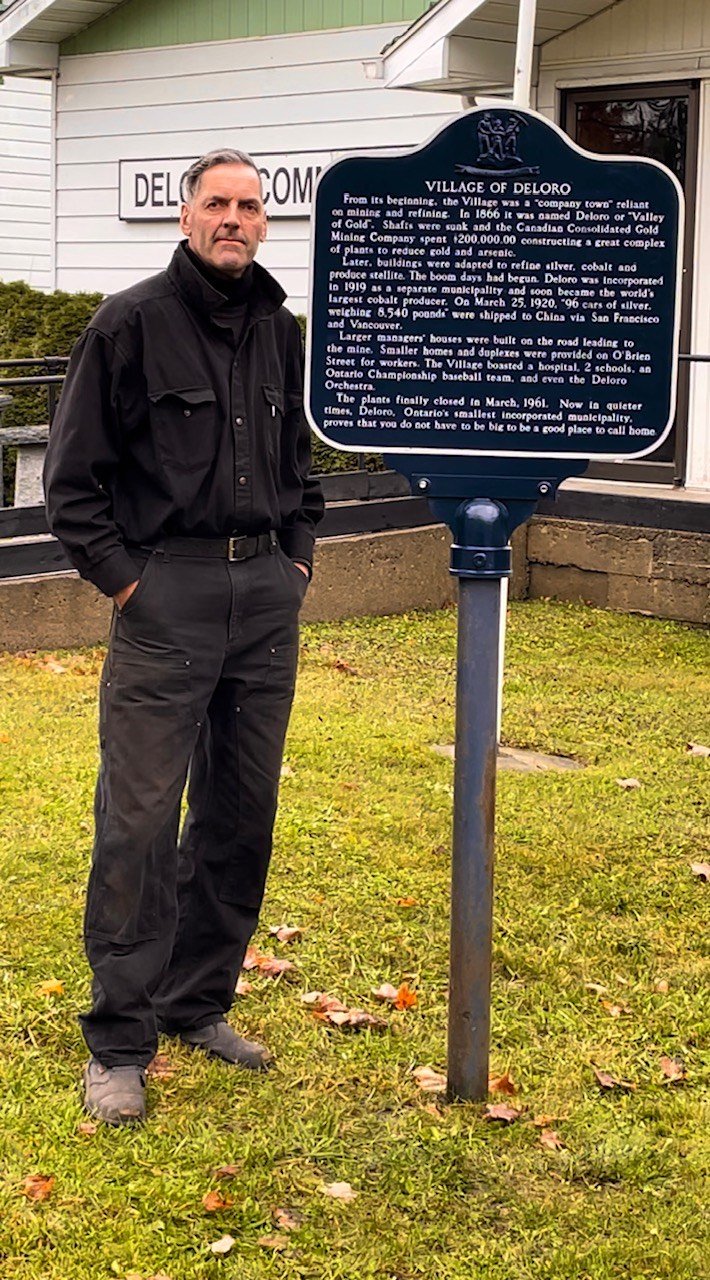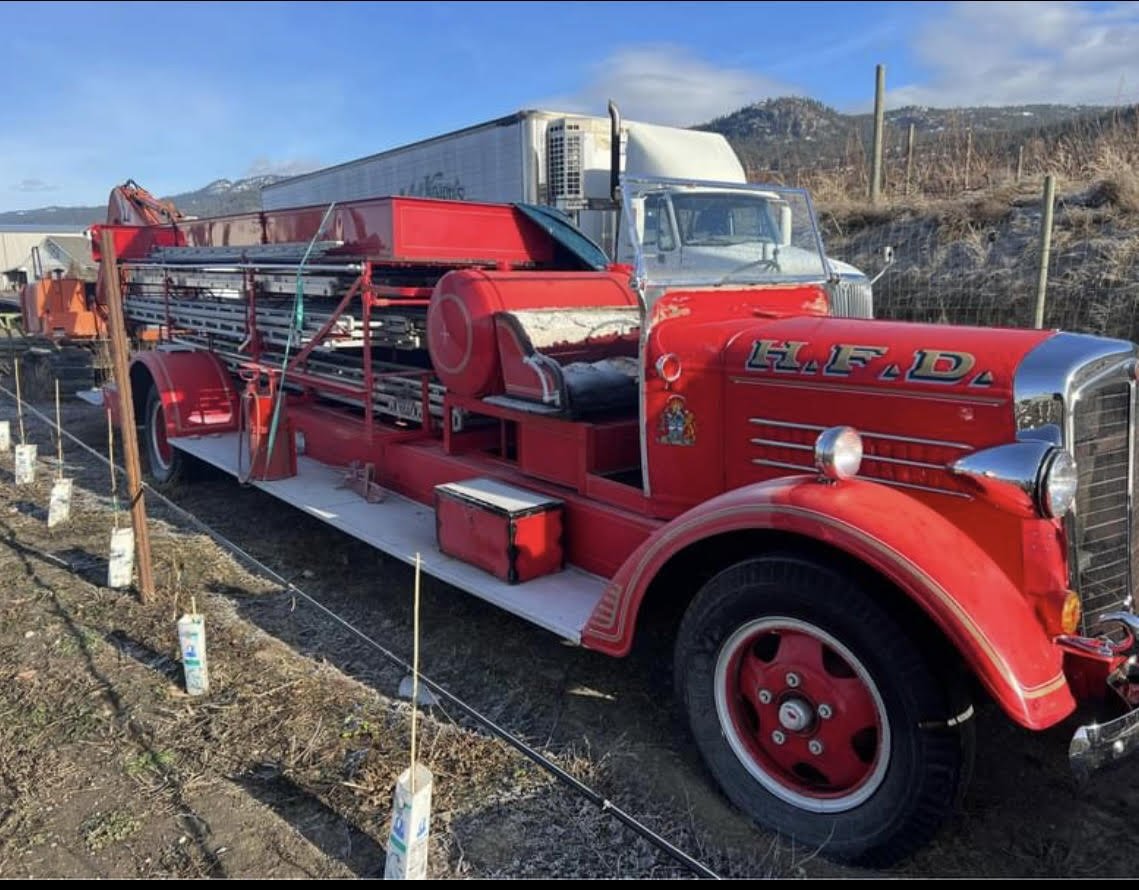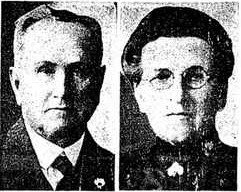....and the mothers made lunch
Reflections on Life in Deloro by Three Ladies
Madge Gaffney, Hilda Thompson and Jean Townsend
Deloro - There are three women who don't like all the stories of doom and gloom in Deloro. They want people to to know life in Deloro when they were growing up in the 1920sand 1930s was very happy.
"Living in Deloro was memorable. It was a pleasure," said Jean Townsend (nee O'Neill) who spoke with her long-time friend Madeline (Madge) Weese (nee Gaffney). Hilda Thompson (nee Mumby) is also keen to share her happy memories.
Hilda Mumby
Madelline (Madge) Gaffney 1934
"We had a marvelous childhood. We would stand out in the street under the streetlight, boys and girls telling jokes, just fun; everyone knew where we were," said Hilda.
Deloro was a company village owned by what turned into the Deloro Smelting and Refining Company. The village was incorporated in 1919. The owner of the works owned the village, and the managers of the works managed the village..
Jean O'Neill
"It was a very pretty village, everyone was proud of their yard and trees were planted. We paid eight dollars a month for our house", said Jean. "Every spring, you could say what repairs you would like, such as getting the living room painted or putting in a hardwood floor. The plant's painter would come and you could pick out the colours you wanted.
"There were garages at the back of the houses," said Madge. "Ours was a kind of barn, and my mother kept chickens and a little pig for meat in the winter." They also remember their fathers growing vegetables in allotments at the north of the village to supplement their diet during the Depression.
"We lived in a double frame house next to the O'Neills, and then moved to a cement block house with a big rock in the front and with a furnace," said Hilda. "There was no running water, only a pump into the cistern and an outside john."
Madge and Jean remember, "Water came from a community pump and was carried in pails. There were three community pumps. 'We had a bath once a week. Water for the bath came out of cistern. It was nice, soft rain water."
The Wrights, Elliots, Bapties were the managers and lived in big detached houses. When Madge's sister had kidney disease, Mr. Baptie bought her a big doll," remembered Jan. "We got little dishes from the lab to play with, and flattened circles of grey lead to play hop scotch with," said Jean. .
Arsenic storage
"We never got arsenic burns, although you could see the arsenic dust," said Jean. "When it was heavy, my mother would say, "Shake the dust off the clothes before you bring them in off the washing line." It tasted awful. Where there was an east wind blowing you could taste it. My father would sprinkle arsenic (insecticide) on the potatoes and on the tomatoes."
Hilda remembers her father getting arsenic burns on his ankles above his socks, and some of the women complaining their arms burned when they put out the clothes.
Christmas was a highlight of the year for the children, "There was a huge Christmas tree in the village hall, which filled the room. Every child from two days old to 12 years old had a gift and a bag of candies. Every family got a free turkey. The size of the turkey was linked to the size of the family," said Jean.
Hilda has her own memories of Christmas. "Christmas was wonderful. On Christmas Eve we gathered in the basement of the village hall, and did the performances we had done at the school. Each year, there was a party at one of the two schools. I was put in the library at school, with the stuffed owl, to learn The Night Before Christmas, and the teacher forgot about me,"
After the children gave their performances, the manager Mr. Baptie or Col. Yates, read out telegrams from Santa saying, "Santa has to go to Bancroft or he has arrived at Malone."
"Eventually, Santa arrived at Deloro," said Hilda. "Percy Gray was Santa Claus for many years. We would flock upstairs. There was a huge tree with a little white picket fence around it with gifts for the children up to 12 years old. Percy used to give the children piggy back rides, and Kay Doyle played the piano. We had carol signing and there were gifts for each family.' I got a Brownie Box Camera for my twelfth birthday. It was a lovely Christmas Eve."
There was a big dance on New Year's Eve for the adults and the women took lunch.
"It was a gala affair which couldn't be compared. The hall was decorated and there was a hired orchestra. The women dressed up to the nines. Nan and Pop Gaffney started the dancing with a Scottish," said Jean. "I remember the decorated hall, with a false ceiling all covered with artificial flowers. The hall was jammed with chairs along both sides."
There were concerts parties in the village hall too. "Mr. Riggs played violin. He was a chemist in the labs and never married. He, Sid Wright and Mrs. Wright, who played piano, played together. Sid Wright was a good musician. 'They were the top echelon," remember both Jean and Madge.
There were dancing practices fro the children and Kay Doyle played the piano. Once a month there was a band from Belleville, Fred Stone played the violin. We paid 56 cents and the mothers made lunch.
There were silent movies too. "Every Friday afternoon there was a film show for the school children up to 12 years old for five cents. At night, there was an adult show with no screaming kids," said Jean.
''The library was open, one night a week, and the mothers marched down to the library and looked at the books we selected," said Hilda.
Deloro Hospital - Herald Apr. 17, 1919
On Good Friday, there were hot cross buns for every family. Mr. Sweet the baker in Marmora made them and delivered them.
"We learned to march with tall Col. Yates," said Hilda. "He came to drill us and we went into the marching competition at the Marmora Fair with a band playing. We were just so so, all in step and with our arms swinging."
"July 1 was a big celebration. The works were closed and we had races and treats, and ball game on the sands below the hill. Mr. Haacke sold ice cream from a little cart. There were first, second and third prizes for the two-legged race and the egg and spoon race. We had a good time."
"In the summer holidays, we had to pick berries, wild raspberries and strawberries," said Jean. "We all knew the best spots on Leo Doyle's farm. My mother would preserve."
Jean and Madge spoke about Hallowe'en. "We went to every house and mom made up a clown suit. People answered the door and had to guess who you were. The boys flipped over the outhouses at Hallowe'en. The only disaster was the Hallowe'en night when an older teenager shot himself.
"We had a good life in Deloro. I don't think of anywhere else, so happy," said Jean. "Mr. and Mrs. Slake ran a Sunday School. They must have financed it themselves. Every kid went, Catholic, Protestant, or Jewish. They all got a Sunday School paper suited for their age. This was the Slakes' missionary work. They didn't have children. We learned most good from the Slakes. It was from 2 to 4 p.m. on Sunday afternoons." Deloro had good medical care as well. "There was a hospital in Deloro. The two doctors were Dr. Crawford and Dr. Thompson. After Madge qualified she became Dr. Crawford's right hand nurse.
Dr. Hamilton Crawford
Jean remembered, "I was 17 when Madge came to the house to see my mom. asked her, "What's the matter with my Mom?'"
"She had a baby last night", said Madge.
"I didn't even know she was having a baby," said Jean.
Hilda and her friends seemed to know more about babies. "Doctor Crawford came to deliver a baby and we waited to see him take it out of his black bag."
Later on, they put two and two together. "We saw Mrs. Leal going down the back lane wearing a maternity smock with buttons down the front," said Hilda.
'The doctors charged $25 to deliver babies," said Madge. She charged $3 for helping.
The dentist, Dr. Curtis, came twice a week and Dr. Crawford came twice a week.
The children got inoculations and vaccination at the hospital in Deloro.
"We never paid for them; they were paid for by the company. Deloro Smelting and Refining Company deserves credit for what they have done," said Jean.
There were good recreational facilities for community of its size.
"There were two tennis courts and a bowling green. There was a ski hill on the hill behind the house going down to the red mud," said Jean.
"We went skiing with broom handles, wearing heavy knit sweaters, scarves and thick stockings," said Hilda. "We had a bobsled dad had made. When we had another baby he made it longer."
"In winter there was an open ice rink on the red mud tailings, with a boys' shack and a girls' shack with a wood stove in each one. The boys played hockey and did well in local competitions," said Jean.
She and Madge spoke of the prize ball team. "...The players got jobs in the plant, but they never had to work."
.
There was a public school in the village as well as a Roman Catholic School.
"We had one teacher when I started for all the grades and double desks," said Jean. "Later, the public school was divided into Grades 1, 2, 3 and 4 with Miss Handley, and Miss Morton had the other grades. We went on to Marmora High School by bus which cost $3.00 per month."
"I went with Joe Gallery and Betty Wright," said Madge. "We went in the company car, before Betty went to Havergal College in Toronto."
"There were 30 children in the Catholic school taught by Miss Foley and Miss Sheridan," said Jean. "The separate school was across the road in a small frame building. During recess we would throw insults at each other, but after school we would go and play together."
Hilda's English mom and another Enqlish lady, Mrs. Davis, took the children to school on their first day all dressed up in white stockings. The cows had got into the school yard and I stepped in it and had to go home to change my stockings," said Hilda.
Norman Smith and Marg Gaffney
"We had Miss Handley for years. She was the most beautiful writer. When we went to school, she would have lots of home work written on the board, covered with roller blinds. There was no room to do gym, so we did a little exercise by our desk, and played baseball on the back."
When Hilda was 14 years old she got a summer job at the Deloro General Store with Mr. Haacke. "He was the boss of the store. I did everything except sell gas. If anyone asked me my age I had to say "going on 16."
There was nowhere else to shop in Deloro. Everyone had a bill on which we wrote down the prices. On pay day, Mr. Crawford set up his desk in the store and everyone was paid and had cash to pay their bills.
Children came in with five cents and we allowed them behind the counter to choose candies.
"There were two grocery deliveries per week and Norman Smith, the butcher, had a good area at the back of the store. "We did deliveries to the homes," said Hilda.
The Silver Plant
While Madge worked as a nurse with Dr. Crawford, Jean worked in the office of the Deloro Smelter and Refinery. "When I used to go to work I would go through the silver plant. I used to stand and watch the liquid silver coming out. It was very grey and turned colour in the little troughs. It turned quite a bright, silver colour. It was a dull grey, when it came out of the spout. The silver was formed into 12 inch by 6 inch bars and put into crates which were stamped and sealed. The bars of silver were sent to Ottawa to the Canadian Mint. There was a guard on the train. I never heard of anyone trying to steal the silver."
Deloro Workmen's Bunkhouses on banks of Moira North of Plant
When Jean got married in 1939, she had to leave her job. "When you got married the company gave you a nice gift, a silver tea service," said Jean. , 'The Hunks (Eastern Europeans) lived in the old bunk house," said Jean. "We knew these people came in truckloads under guard. They lived there and were fed there. My father would say, 'There is a new bunch." Hilda had more contact with these men at the shop. "The immigrant workers lived by the river. I learned how to spell their names. The men wanted certain kinds of tobacco and paper. I can't remember where they came from, perhaps Poland and Romania." "The company would go to Toronto to hold interviews at the Royal York Hotel for university graduates," said Jean. "There was a club house for these single feiiows run by Miss Smith. Jean's husband was probably recruited this way as he could read engineering blue prints."
"I don't know where else one could have raised a big family so well," said Jean. "There was never any sort of smoking, drinking or sex. We learned a lot from the neighbours. I don't think there was another place like it."
Hilda's happy memories are tinged with sadness. Her father Wilbert Mumby died at the age of 61 from cancer of the lungs like many other Deloro workers. She and her sister nursed him through the illness.

































